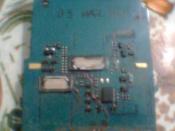"Virtual Intimacy" by Ann Patchett is a short essay about her feelings about he age of communication. The essay is an expressive reaction in which the author explains to her audience that cellular phones are, instead of making life more convenient for society, is moving society father apart from each other. She describes talking on the phone as being something that used to be done sitting down in your home or in your office. Now she describes the new convenience of cellular phones as a terrible nuisance to her and other members of society. She mentions the cellular phone in the same group as the Internet, answering machines and communications technology in general. Cellular phones are becoming a growing part in our society, despite society's fears of them making our lives less private.
With an expressive purpose, Patchett makes an emotional response by saying that cellular phones are ""ædestroying us."
With her statement she explains situations that she believes we've all been through at one point in our lives. Examples that she gives show how cellular phones have become bad parts of our society. ""æwe have all had the experience of listening to a teenage girl recount the plot of a tedious film to her girlfriend over her phone while we drink our coffees in Starbucks." She also talks about the inherent dangers of them, such as putting the user's attention to the call and not to their surroundings. "We have all been nearly killed in traffic by a driver who is looking down to dial a phone in his car." Not only does she state that she despises how big cellular phones are becoming in society, she also talk s about the other tools of communication. One example she gives is about her answering machine, whom she only bought because of ""æyears of complaint from friends unable to reach her." She felt that she could call back people at her leisure, but instead feels compelled to answer every single call she receives. In no time at all the burden of messages ""æbecame a Bernese mountain dog sitting on my chest. I cannot get out from under the calls that must be returned. She also feels that we've come to an age where people don't want to talk to other people anymore, but want to talk to their answering machines instead, and tells her audience about how she feel as a person. ""æI get plenty of messages from people who do not want to talk to me. They want to talk to my machine. I know this because when I answer unexpectedly, they stumble and make excuses." Her values towards her calls are expressed when she feels that returning calls from other people compares with a game of tag. "The premium in phone tag is calling back, to pass the debt to the person on the other end." She expresses herself as being considerate when she says, "I am relieved at the end of the day when all the calls have been volleyed back. I have accomplished nothing, but at least no one will accuse me of being rude." In conclusion, the author of this story has shown that cellular phones, in some cases, can be alienating society from each other, even though it's plan is to bring it closer together. She does a fantastic job on showing how she feels towards her subjects, and makes clear how her audience should see cellular phones and other methods of communications technology. It makes me think how all the writer has to say on the subject does have a lot of merit. I've been through countless experiences with them, and not one experience I've had ever made me proud to have or be around when it rang.





